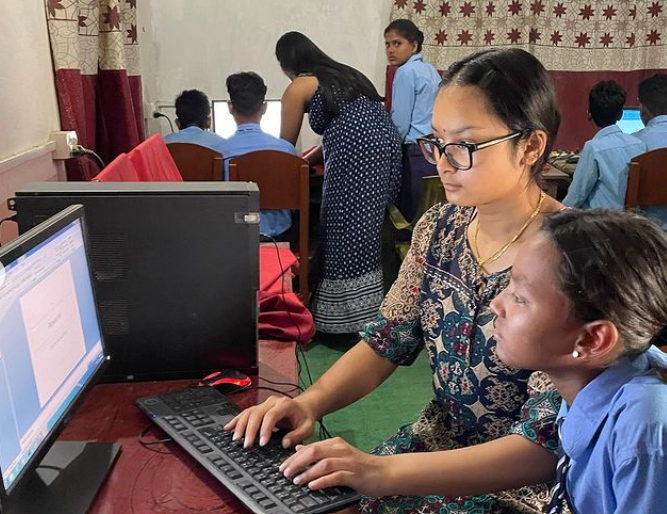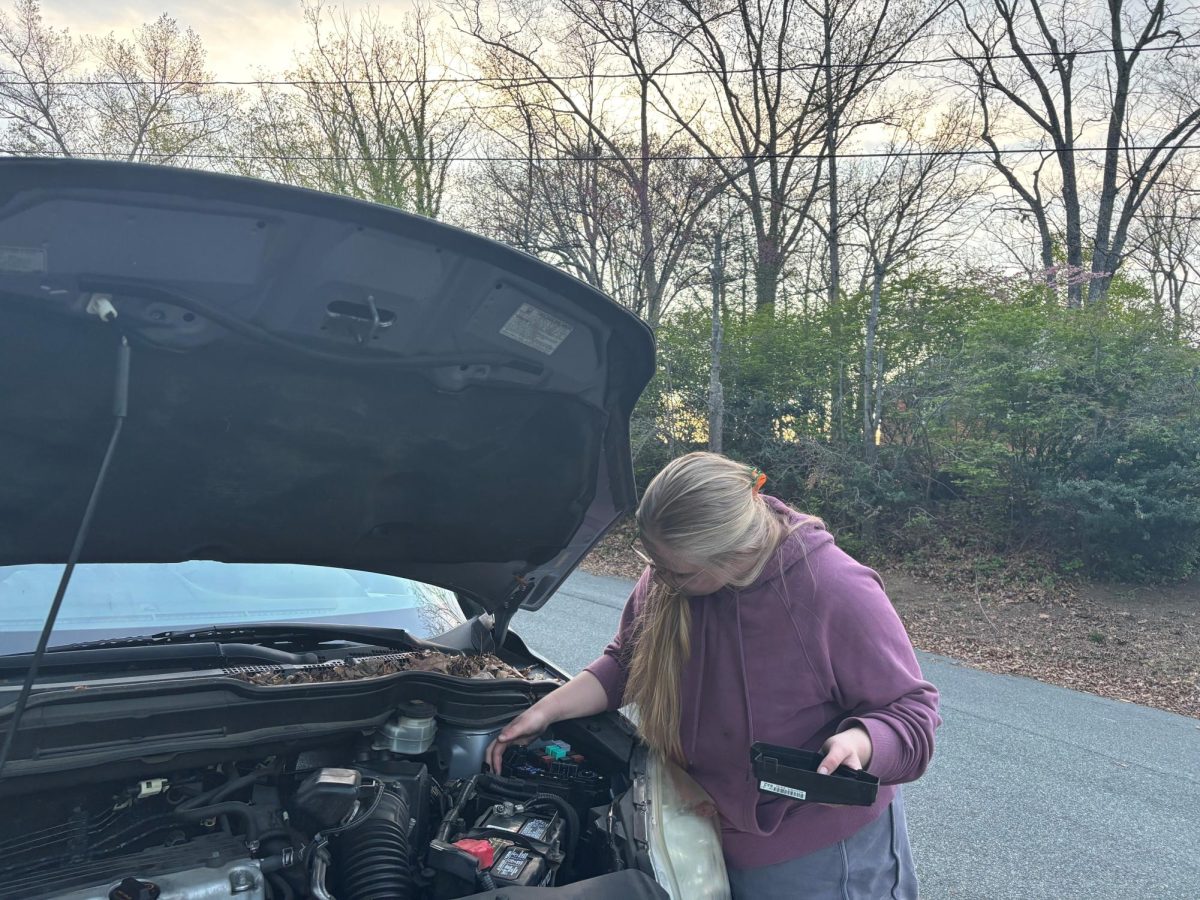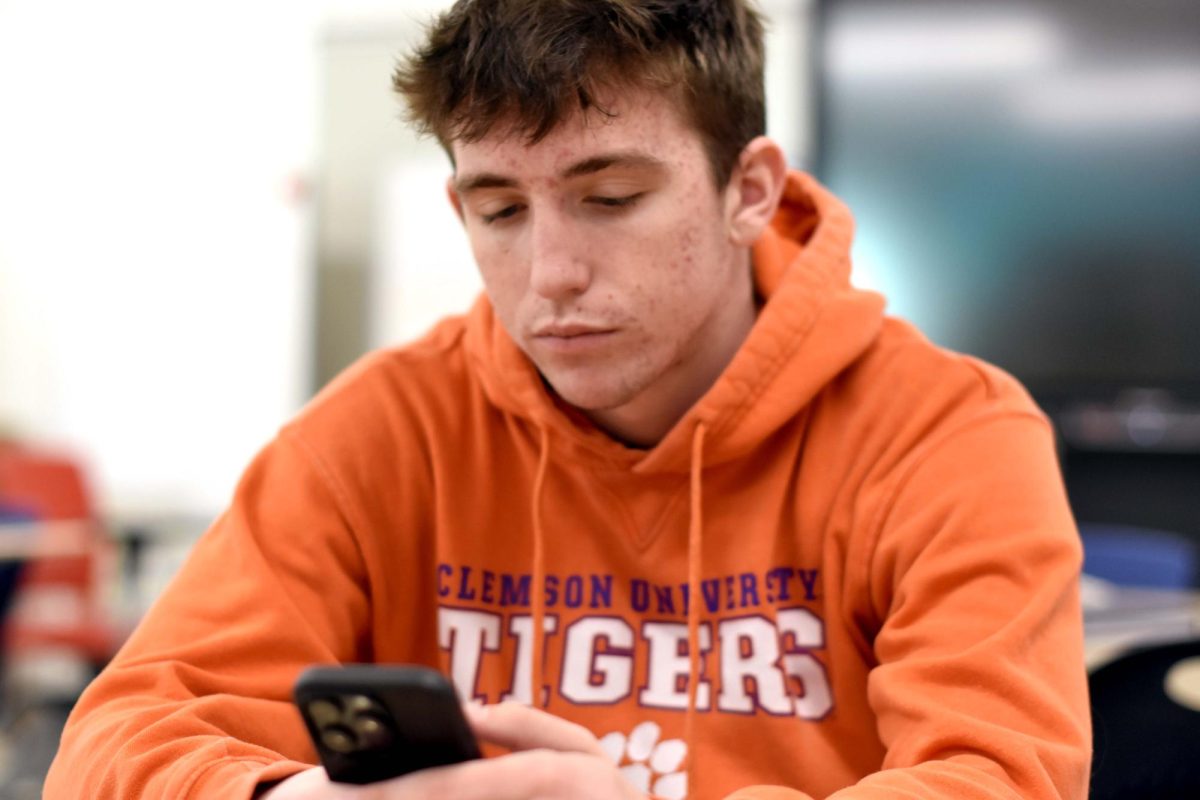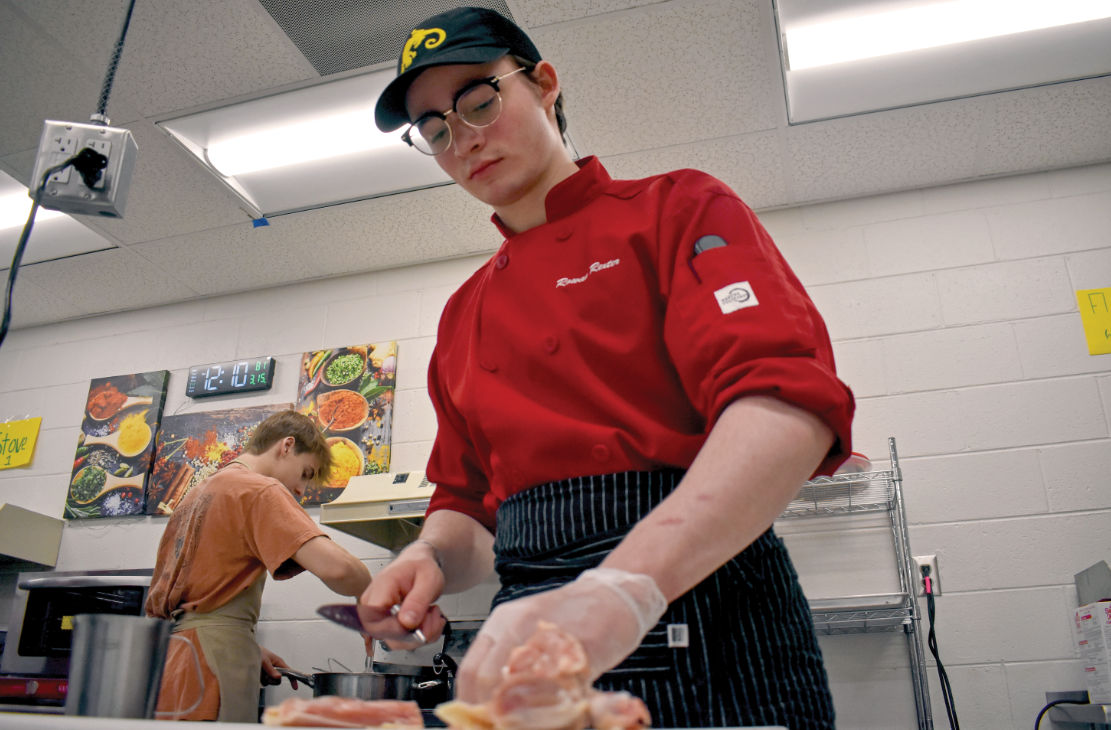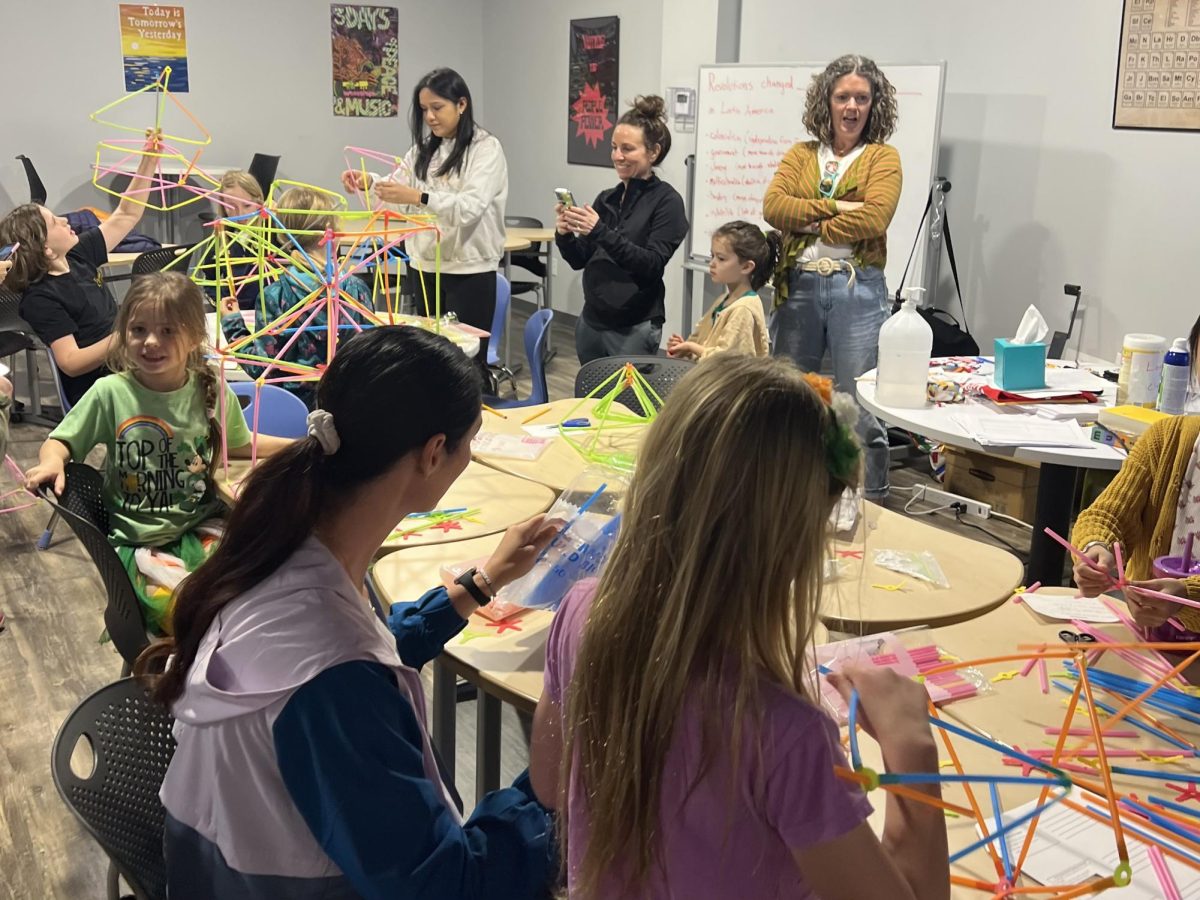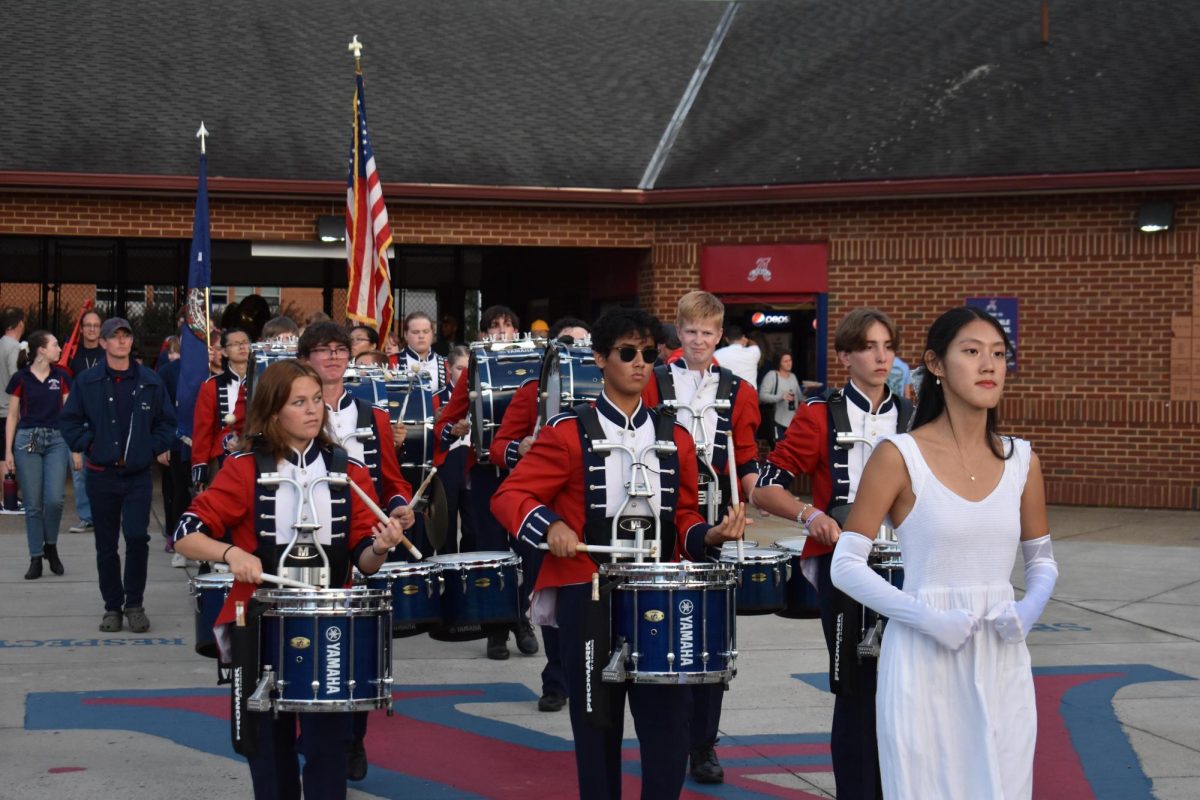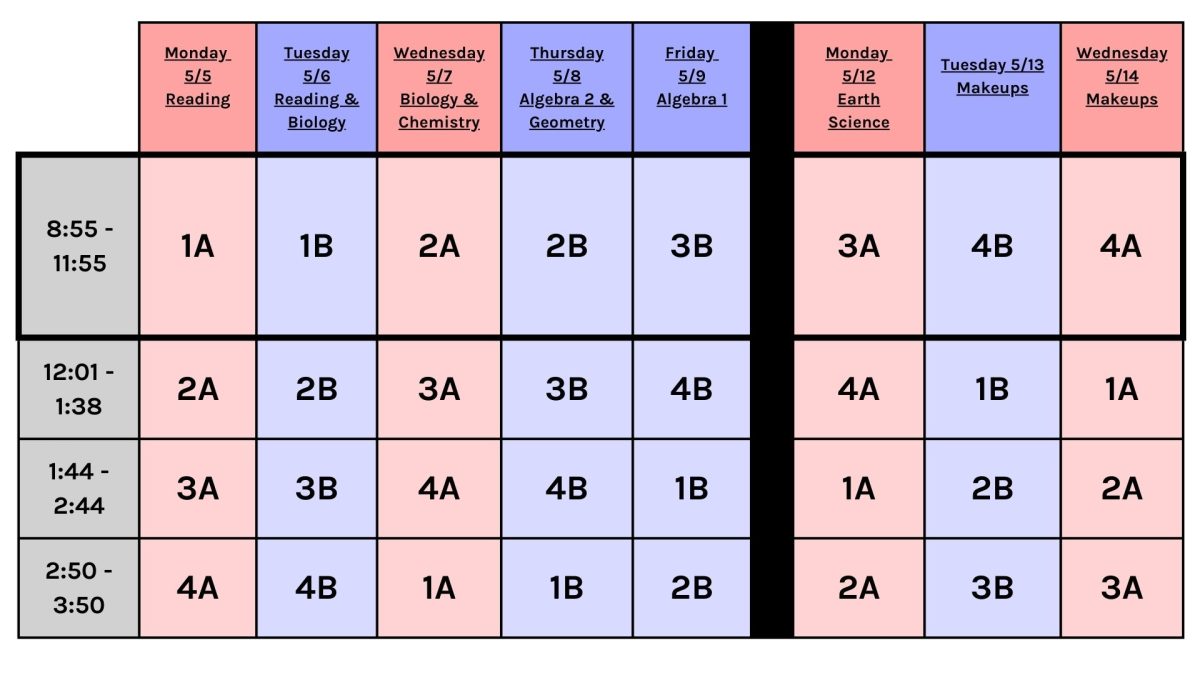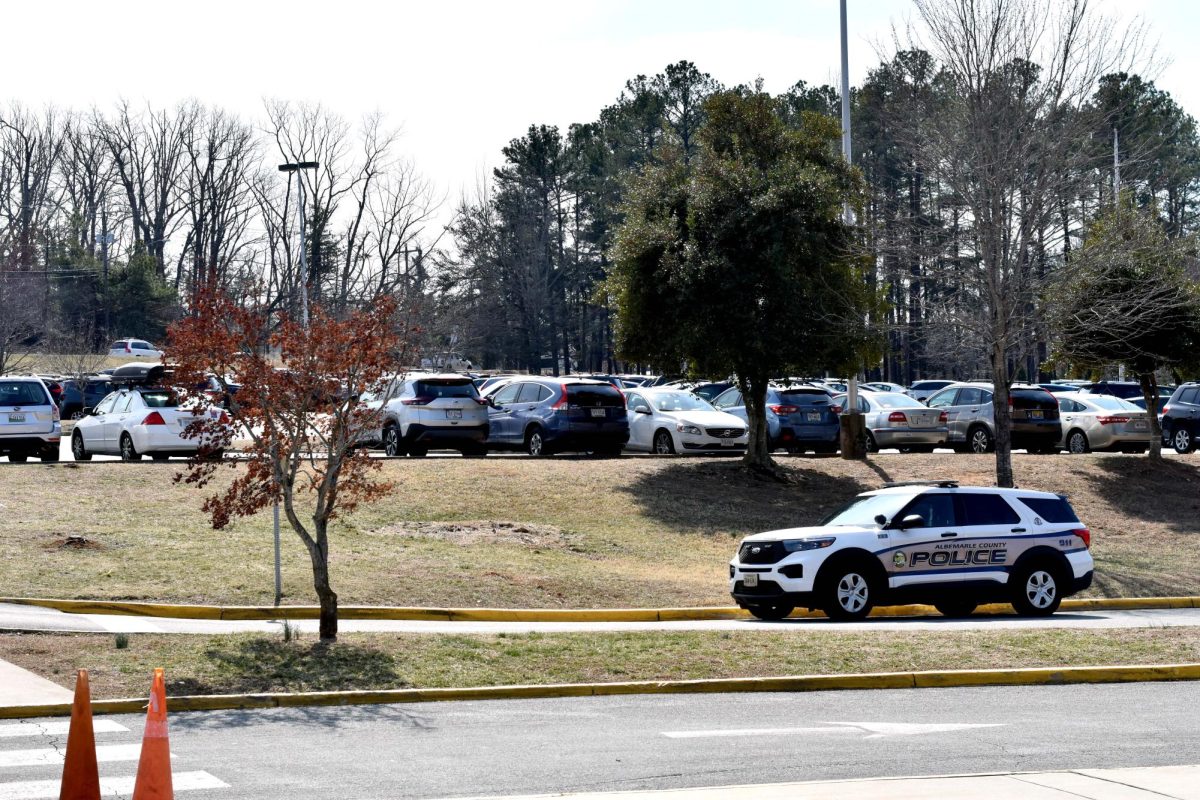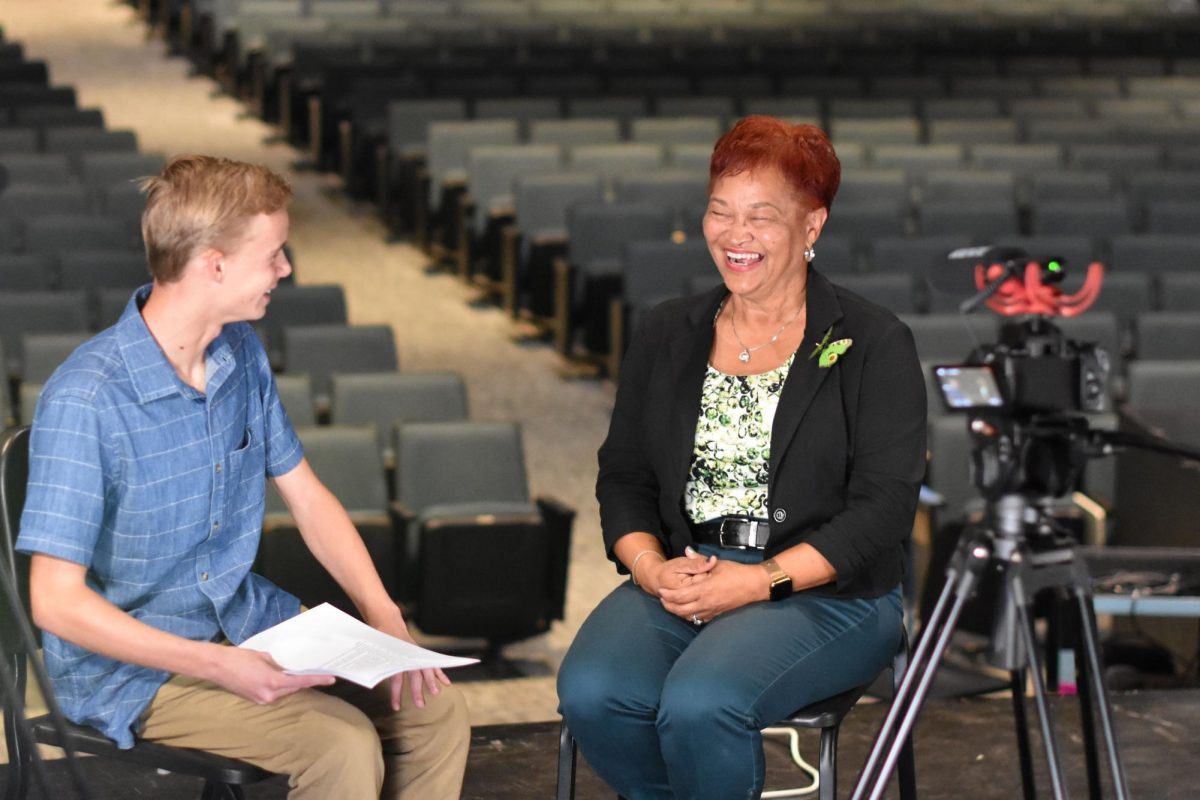Eating spicy dumplings and laughing at greedy monkeys, sophomore Aarushi Shah walked the dusty roads of Kathmandu and Lahan to connect with her roots and give back to her Nepali community.
Shah believes that the food in Nepal was an incredibly important way to connect back to her family. “There was a point in time when I had dumplings every single dinner or lunch,” Shah said. “It was just so good, and you can’t get that in the States, but in Nepal, it’s my favorite thing.”
Shah also spent some time visiting the market stands in Kathmandu’s sandy streets. People in Kathmandu sell food, jewelry, tapestries, dream catchers and art at outdoor markets. “They would sell pretty anklets or rings,” Shah said.“They have pretty tote bags and really good tapestries.”
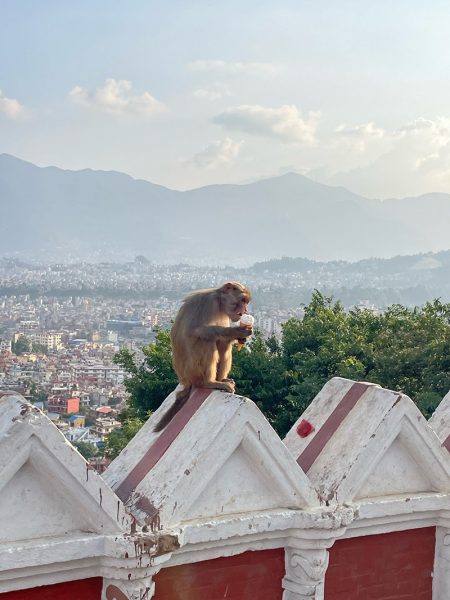
While in Kathmandu, she did more than enjoy street food. She visited a Hindu temple filled with “cute, yet silly” monkeys that grabbed humans’ belongings if they weren’t careful.
“You cannot have anything in your hand because [the monkeys] are very greedy and proceed to steal stuff,” she said.
Shah wasn’t only connecting with her roots through food and animals, but through seeing her family themselves. She visited her grandparents for the fourth time this summer.
“I spent a lot of quality time with my grandparents. We would sit down, have tea and biscuits, and then just play card games because that’s our love language. We love playing card games as a family. I miss it. It’s my home, my true home.”
Besides visiting family, Shah was also in Nepal to do volunteer work for her uncle, Amit Shah’s, non-profit, the Apan Foundation, based in New York.
The Apan Foundation’s goal is to teach underprivileged children about resources that are not available to them where they live. He hopes to benefit their future and overall well-being.
Aarushi wanted to help her uncle’s foundation by creating a technology workshop for kids who don’t have access to resources themselves.
Shah taught kids her age basic skills such as touch typing and navigating computer resources. While teaching peers can be challenging, “I could consider them my friends, so we had that comfort level,” Shah said.
“One thing I was a little nervous about was the language barrier and seeing if they would understand my type of English because in Nepal they teach British English,” she said.
The students ended up speaking very little English, so Shah had her sister act as a Nepali translator.
Even as a teacher, she learned a lot while in Nepal. “When I started teaching, it was just really inspiring to see how interested the students were in technology,” Shah said.
Not only was she inspired by the interested students, but also by their determination. There was lots of problem-solving and adaptation during her trip.
Shah had to quickly shift gears when internet access wasn’t available. A drought during the monsoon season forced farmers to use electric pumps to water their crops which overloaded the local power grid.
Most of the workshop was meant to be taught online, so Shah had to find programs that could run on the computers without an internet connection.
“This issue ran throughout the entire time, but they still showed they were interested,” Shah said. “Students were still raising their hands and asking me questions.”
“It’s so important to recognize that these brilliant students should be provided with so many resources to help them in their career and just their life in general.” Shah hopes that workshops like these will impact students for the rest of their lives.
This workshop not only empowered the students but also Shah herself. She said she feels connected when she teaches and hopes to make her parents proud in the process.
Nira and Ajay Shah are first-generation immigrants who moved to New York in the late 2000s. “My dad always tells me stories about valuing hard work and how much work he’s put into coming into this country as a doctor. It’s just inspired me,” she said.
“Throughout my whole life, I’ve always wanted to prove to my parents, ‘I will make myself proud. I’ll make you proud. I’ll make the future generations of our family proud because it’s such a privilege for us to be in this country,’” Shah said. “ I don’t want people to take it for granted.”
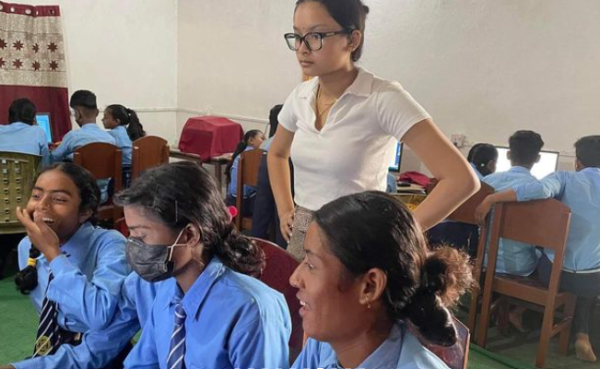
Shah hopes that this won’t be her last time helping out the Apan Foundation. She’s already spoken to her uncle about plans for the future, such as planning to host drives and fundraisers within the school or local community, as well as just spreading awareness of their cause.
“It made me a little emotional because, after the workshop with the Apan Foundation. I still want to be playing an active part in their lives—even a little thing can make such a big difference,’ Shah said.
Her experiences in Nepal cemented Shah’s devotion to maintaining a strong cultural identity.
“Here in the States, you just have wonderful opportunities and I never want to let my life go to waste,” Shah said.
“It’s really important to represent the underrepresented people here in America. You have Asians, but then you have different ethnicities. Valuing South Asians, specifically Nepali people in the United States, is very important. Therefore, I want to stay connected to my roots as much as I can, such as going on trips to Nepal, learning our language, eating our food, or just talking to a lot of Nepali people.”

